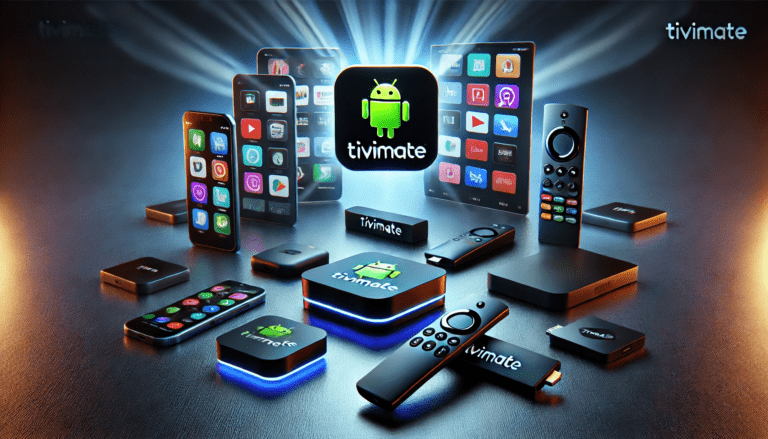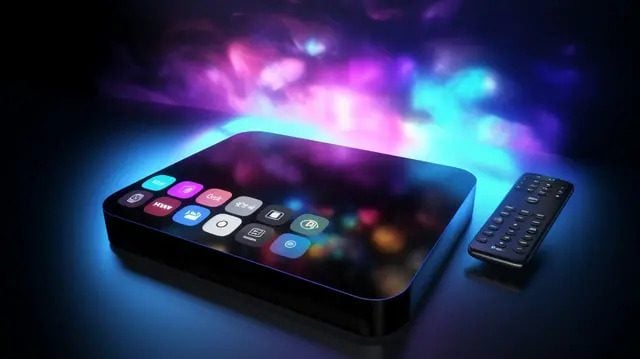
As the demand for flexible and high-quality entertainment grows, IPTV (Internet Protocol Television) has become a game-changer, delivering content through the internet rather than traditional cable or satellite methods. With a variety of offerings including live TV, on-demand shows, and more, IPTV is reshaping how we watch television. Here’s an in-depth look at how IPTV works and the benefits it offers users worldwide.
What is IPTV?
IPTV, or Internet Protocol Television, delivers television content through the internet. Unlike cable or satellite, which rely on physical infrastructure, IPTV streams data via the internet, offering more flexibility and customization. This system allows users to access live TV channels, video-on-demand (VOD) libraries, and catch-up content on multiple devices, from smartphones to smart TVs.
How Does IPTV Work?
IPTV operates by delivering media in the form of packets, using a method called “streaming.” Here’s a breakdown of the main types of IPTV services:
- Live IPTV:
- Live IPTV is similar to traditional TV broadcasts, providing real-time streaming of content. It’s popular for sports events, news, and other live shows. The data is streamed instantly, allowing users to watch content as it airs.
- Video on Demand (VOD):
- With VOD, users select specific titles (movies, series, etc.) from a library and stream them instantly. Services like Netflix and Hulu operate on a similar principle, making content available whenever the viewer desires.
- Time-Shifted TV:
- This type allows users to watch previously aired programs at their convenience. Known as “catch-up TV,” it’s ideal for people who miss live broadcasts but want to view the content later. Many IPTV providers offer a limited catch-up window (such as 7 days), enabling users to stay updated on favorite shows.
Each of these types works over a secure network that sends video data in small pieces or packets. This format enables viewers to stream content without waiting for the entire file to download, providing smooth and seamless viewing experiences.
Key Components Needed for IPTV
To set up IPTV, users need:
- High-Speed Internet: IPTV requires a stable internet connection to deliver high-quality streaming. Speeds of 10 Mbps or higher are recommended for HD quality, with 25 Mbps for 4K content.
- IPTV Subscription: An IPTV provider gives access to a range of channels and on-demand content, often through a monthly or annual subscription.
- Compatible Device: IPTV can be viewed on devices like smart TVs, smartphones, tablets, or computers. Many providers also support streaming devices like Amazon Fire Stick, Apple TV, or Android TV.
- IPTV App: A dedicated IPTV player, such as TiviMate, IPTV Smarters Pro, or VLC Media Player, enables users to access their IPTV subscription. These apps allow users to organize channels, view electronic program guides (EPG), and customize settings.
Benefits of IPTV
IPTV offers several advantages over traditional TV formats, making it increasingly popular worldwide:
- Vast Content Library:
- IPTV services provide access to thousands of channels, spanning sports, news, entertainment, documentaries, and international content. Many IPTV providers also offer VOD libraries with movies and TV shows from around the world.
- Flexibility and Convenience:
- One of IPTV’s strongest advantages is its flexibility. Users can watch content on any device with an internet connection, whether at home or on the go. This convenience makes IPTV ideal for viewers with dynamic schedules or those who prefer mobile viewing.
- High-Quality Streaming:
- IPTV supports HD and even 4K quality, offering a superior viewing experience compared to standard cable TV. Provided the user has a high-speed internet connection, they can enjoy crystal-clear content with minimal buffering.
- Personalization:
- Many IPTV apps and providers allow users to create custom channel lists, set up favorites, and control their viewing preferences. Some services even allow for parental controls, making IPTV an ideal choice for families.
- Cost Efficiency:
- IPTV services are often more affordable than traditional cable packages, offering a broad range of channels and on-demand content at a fraction of the price. Users can also select specific packages that fit their viewing needs, avoiding the extra cost of unwanted channels.
- Time-Shifted Viewing:
- With features like catch-up TV, users have more control over when they watch. Time-shifted options allow them to watch programs they missed without having to record content in advance.
The Global Reach of IPTV
IPTV is accessible to users worldwide, as it only requires an internet connection. It’s especially popular in regions where traditional cable infrastructure is limited or expensive. Viewers in Europe, Asia, North America, and other regions benefit from IPTV’s ability to provide global content, making it easy to access international programming and stay connected with media from other countries.
For expatriates, travelers, or users seeking foreign content, IPTV offers a convenient way to access channels from their home country. With language options, subtitles, and a range of international channels, IPTV caters to a diverse global audience.
Legal Considerations for IPTV
It’s important to note that IPTV legality varies based on the provider. Some services operate without proper licenses, potentially streaming copyrighted content without authorization. To ensure a safe and reliable experience, choose legitimate IPTV providers who secure the necessary licensing for the content they offer. This guarantees high-quality streaming and legal access to your favorite channels and shows.
The Future of IPTV
As internet speeds continue to improve and technology advances, IPTV is set to become even more accessible and feature-rich. Emerging trends like 5G technology, smart home integration, and artificial intelligence could further enhance IPTV’s functionality, providing a more personalized and immersive viewing experience. With these advancements, IPTV is well-positioned to become the go-to choice for modern home entertainment.
Conclusion
IPTV is revolutionizing the way people watch television, offering an on-demand, flexible, and personalized alternative to cable and satellite TV. With access to thousands of channels, VOD libraries, and unique features like catch-up TV, IPTV appeals to users worldwide. As technology continues to evolve, IPTV will likely play an even more prominent role in delivering high-quality, cost-effective entertainment for everyone.




